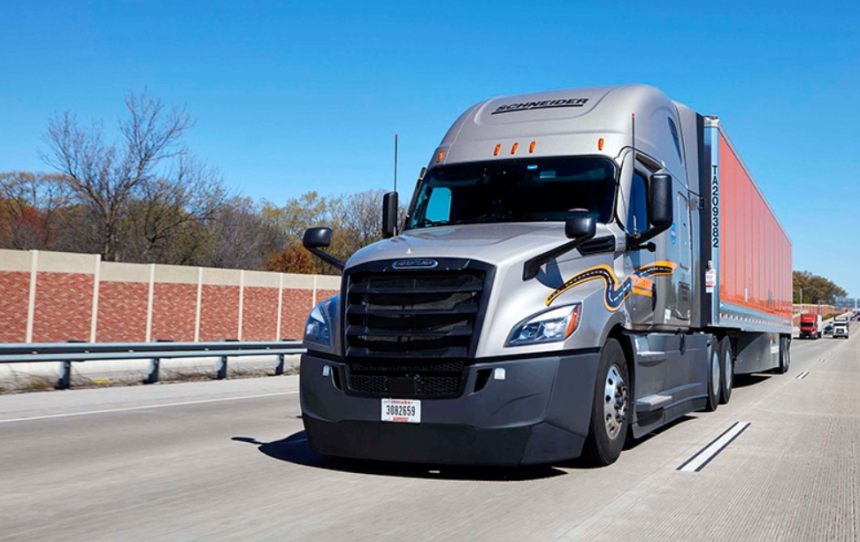If you’ve ever been fascinated by the idea of hitting the open road, exploring new places, and being in control of your own journey, a career as a truck driver might just be the perfect fit for you. Truck driving is not just a job; it’s a lifestyle that offers adventure, independence, and a steady income.
In this beginner’s guide, we’ll walk you through the essential aspects of becoming a truck driver, from the requirements and truck driver news to training, life on the road and what to expect. So, hop on board as we embark on this exciting journey into the world of trucking!
1. Why Choose a Career as a Truck Driver
Becoming a truck driver is not just about driving a big rig; it’s about choosing a career that offers numerous benefits:
- Job Security: The demand for truck drivers is consistently high, making it a stable and recession-resistant profession.
- Competitive Salary: Truck drivers can earn a good income, and the potential for increased earnings grows with experience and specialized skills.
- Independence: You have the freedom to work alone and make decisions on the road, which can be a refreshing change of pace.
- Travel Opportunities: Trucking allows you to see new places, experience different cultures, and make lasting memories.
- Quick Entry: You can get started quickly, as truck driver training programs are usually shorter than many other career paths.
2. Basic Requirements for Becoming a Truck Driver
Before you start envisioning yourself behind the wheel of a big rig, it’s essential to understand the fundamental requirements for this profession:
- Age: You must be at least 21 years old to operate a commercial motor vehicle across state lines. However, some states allow intrastate driving for those as young as 18.
- Driver’s License: You need a valid driver’s license in your state of residence. Most trucking companies require a Class A Commercial Driver’s License (CDL) for long-haul driving.
- Clean Driving Record: A clean driving record with minimal violations is essential. DUI convictions or excessive speeding tickets can hinder your prospects.
- Physical Fitness: You’ll need to pass a Department of Transportation (DOT) physical exam to ensure you’re in good health to handle the rigors of the road.
- Background Check: Many employers conduct background checks as part of their hiring process. Ensure you have a clean criminal history.
3. Getting Your Commercial Driver’s License (CDL)
To legally operate a commercial motor vehicle, you’ll need to obtain a CDL. The process includes the following steps:
a. Study for the CDL Written Test
- Get your hands on the CDL manual for your state. It’s your go-to guide for the written test.
- Study key topics such as vehicle inspections, air brakes, and road signs. These will be covered in the written exam.
b. Obtain a Commercial Learner’s Permit (CLP)
- To take your CDL training on the road, you’ll need to apply for a Commercial Learner’s Permit (CLP).
- Visit your local Department of Motor Vehicles (DMV) and bring proper identification, proof of residency, and your medical certification.
c. Find a CDL Training Program
- Enroll in a reputable CDL training program or school. They’ll provide the necessary skills and knowledge to help you pass the driving skills test.
- These programs often offer both classroom and practical training to prepare you for your CDL exams.
d. Pass the CDL Skills Test
- Once you’ve completed your training and feel confident, it’s time to take the CDL skills test, which includes a pre-trip inspection, basic control skills, and an on-road driving test.
- Passing the CDL skills test is your ticket to earning your full CDL.
4. Choosing the Right Trucking Company
Once you’ve earned your CDL, it’s time to decide where you want to start your trucking career. Consider factors like the type of driving you prefer, the size of the company, and the location of their operations. Here are some things to keep in mind:
- Local vs. OTR (Over-the-Road): Do you want to stay close to home with local routes, or are you ready for the adventure of long-haul trucking?
- Company Size: Large carriers often offer stability and competitive benefits, while smaller companies may provide a more personalized experience.
- Equipment: Find out about the quality and maintenance of the trucks you’ll be driving. Well-maintained equipment can make your job more comfortable and safe.
- Pay and Benefits: Compare salary, bonuses, health insurance, retirement plans, and other benefits offered by different companies.
- Company Reputation: Research online reviews and ask current or former employees about their experiences with the company.
5. Life on the Road
Life as a truck driver is not just a job; it’s a unique lifestyle. Here’s a glimpse of what you can expect when you hit the open road:
- Schedules: Truck drivers often follow irregular schedules. You might be on the road for several days or even weeks at a time, followed by a few days off.
- Independence: While you’ll have a dispatcher to coordinate loads, you’ll still have a lot of independence and control over your schedule.
- Sleeping on the Road: Long-haul truckers typically have a sleeper berth in their trucks for rest and sleep.
- Health and Wellness: Staying healthy on the road can be a challenge, so it’s essential to pay attention to your diet and exercise.
- Communication: Technology has made it easier to stay connected with loved ones while on the road, but it can still be tough to be away from home.
6. Challenges and Rewards
Trucking comes with its unique set of challenges and rewards. Here’s a balanced view of what you can expect:
a. Challenges
- Loneliness: Being away from home for extended periods can lead to feelings of isolation. Maintaining connections with family and friends can be challenging.
- Physical Demands: Long hours of driving can take a toll on your body. It’s essential to stay alert and prioritize rest.
- Weather Conditions: Truckers must navigate various weather conditions, from blizzards to thunderstorms, which can be stressful and dangerous.
- Traffic and Safety: Dealing with heavy traffic and navigating through unfamiliar areas can be demanding.
b. Rewards
- Job Security: The trucking industry provides stable employment opportunities, and experienced drivers are always in demand.
- Income Potential: Truck drivers can earn a good income, and additional endorsements or specialized skills can lead to higher pay.
- Adventure and Travel: If you love to travel and see new places, trucking allows you to explore different cities and landscapes.
- Independence: Many truck drivers appreciate the autonomy that comes with being on the road.
7. Continuing Education and Advancement
Trucking offers opportunities for ongoing learning and career advancement. Here are a few paths you can explore:
- Endorsements: Obtaining endorsements, such as Hazmat or Tanker endorsements, can open new job opportunities and potentially increase your earning potential.
- Specialized Driving: Consider becoming a specialized driver, like a freight hauler, car hauler, or a flatbed trucker, to cater to specific industries.
- Fleet Owner: Some truck drivers eventually become owner-operators, managing their own truck and business.
- Instructor: If you enjoy teaching and mentoring, you can become a truck driving instructor.
So, take the wheel, follow your passion, and start your exciting journey as a truck driver today!















